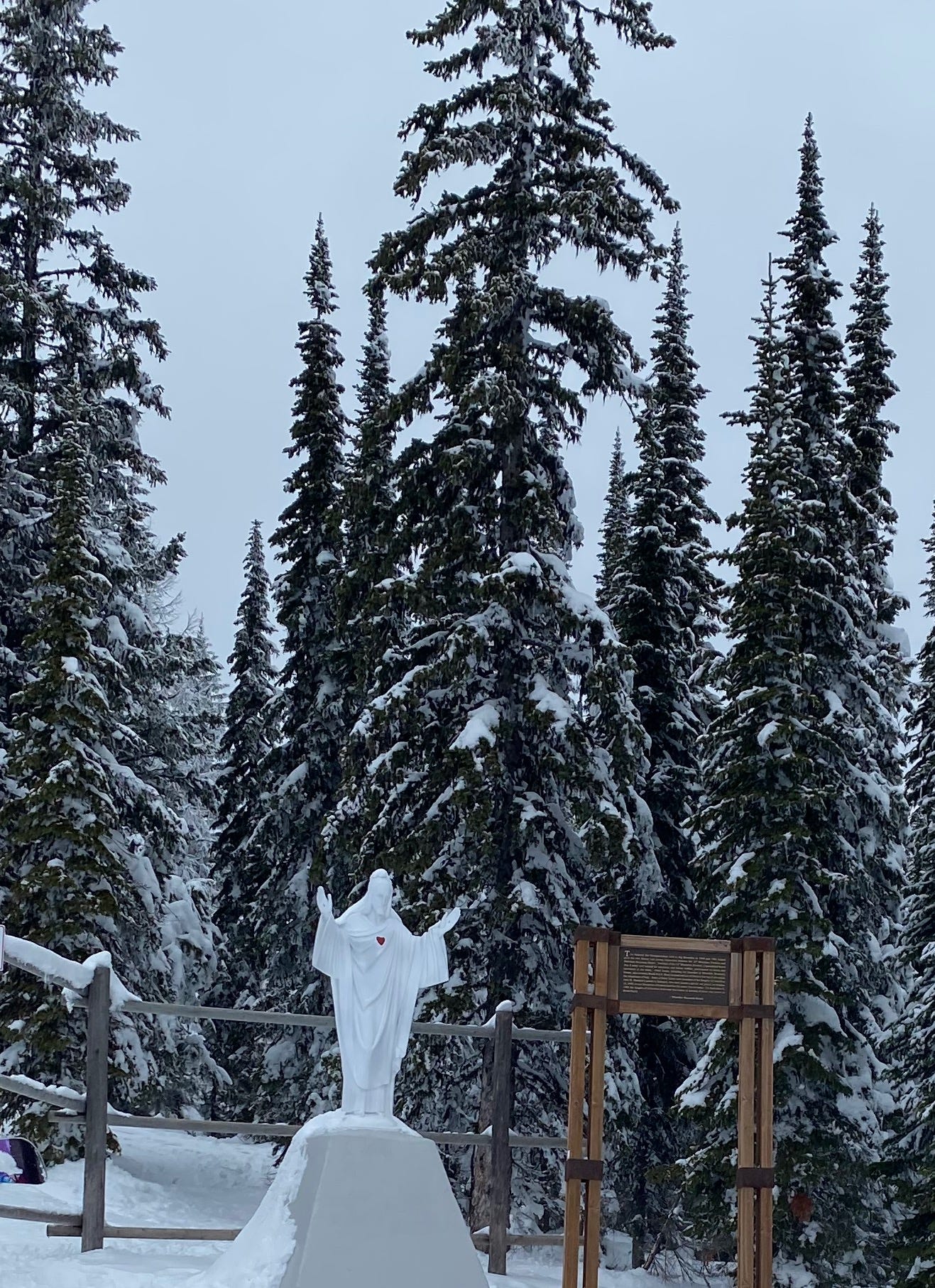Ski Jesus says be nice to people.
Listening to an episode of the Futures podcast on quantum mechanics with physicist Sean Caroll reminded me of a science fiction book I read recently—Micaiah Johnson’s The Space Between Worlds, whose plot relies on the many-worlds interpretation of quantum mechanics, the theory that every possible reality exists simultaneously in an infinite number of universes.
There was a perhaps predictable but nevertheless well-executed metaphor that spun out in this novel about how the spaces between people, and how we understand one another (or mostly, don’t), are even wider than the spaces that the main character traverses between worlds.
The main character is allowed to do this on over 300 worlds because her “self” on those worlds has died. Only people whose alternate self has died in a universe can visit it, and only worlds relatively similar to the one the main character lives on are accessible. These specifications make sense given the science, but they also allow Johnson to explore many issues of class and justice: Since your other self has to have died for you to visit a world, the people employed to traverse are almost always those whose lives are precarious to begin with—they’re more likely to have died in many different realities, so employing them is efficient because they can visit all the worlds where they no longer exist. And it allows the author to play with plenty of ways that the main character can fail to understand her own self.
It’s a very human book, coping with questions of trust and division while at the same time with the unfolding reality of a wannabe dictator raised by an abusive and narcissistic father. “He doesn’t want us to feel closer to him; he wants us to worship him.” Oof.
The spaces between us, the ways in which we try to relate to one another and save our own lives, while struggling against the forces that seek to take all they can and crush everything else, they’re a hard thing to traverse. But they’re worth it, even if we’re not walking among the stars.
—-
Some stuff to read or listen to:
A whole lot going on in this two-hour podcast episode of Your Undivided Attention—a conversation between the founders of the Center for Humane Technology and historian Yuval Noah Harari. AIs that understand people better than people do, the fast-arriving reality of tech that can read your emotions from the inside, and the degradation of a shared reality as everyone silos into their own virtual reality. Kind of fun freethinking when Harari presses the group to think about utopian uses of tech rather than dystopian. Even in these best cases, he asks, do we still lose our free will?
The wonky side of my brain that still follows a lot of urban planning would very much like you to get interested in parking policy. An enormous amount of land is devoted to parking, and unlike, say, affordable housing or decent health care, minimum parking requirements are dictated by local zoning and is something that normal everyday people can to work change in their own communities. Planetizen has some good thoughts: “We consider housing for automobiles a necessity that, by law, everybody must subsidize, while housing for people is optional.” A lot of wonkiness here — like “For example, a recent study of multifamily developments in the Denver region found that 40% of spaces in market-based buildings and 50% of spaced in below-market buildings are virtually never used” — but the boring day-to-day stuff is actually where the world changes if we truly want it to.
More wonk: There are actually 3 housing crises in California. Also part of the same article, a really compelling overview of how the power of California’s construction workers’ union seems to hold back affordable housing initiatives.
Watching Barcelona use the pandemic to forward people-first urbanism was inspiring but I wasn’t sure if it would last. It seems to be going full-steam ahead, though, squeezing out cars to make more room for public spaces and urban greening.
I haven’t read this book yet, but if you’re interested, Verso Books is making its U.S. Anti-Fascist Reader available for free as an ebook (electronic version only; paperback is around $20).




OMG.. Ski Jesus.. that pic floored me..trying to figure out how in the heck that came to be!
I just started reading "Sapiens" last night.